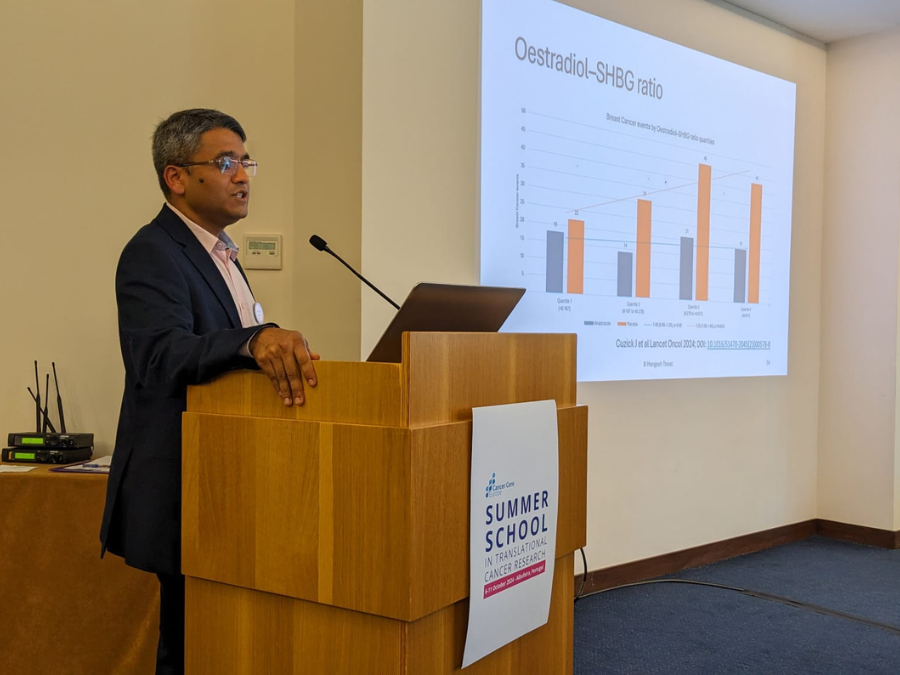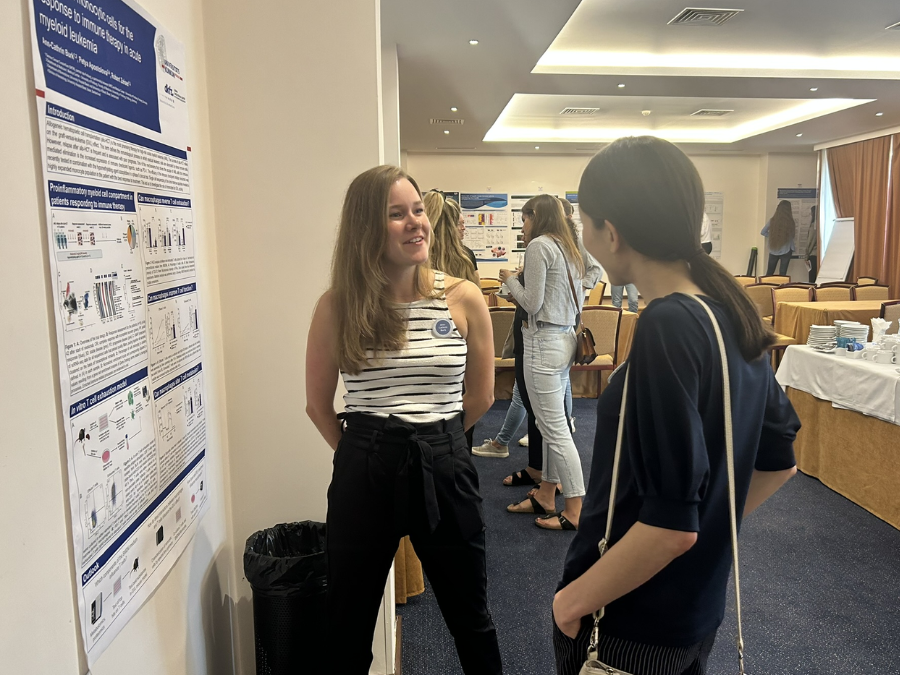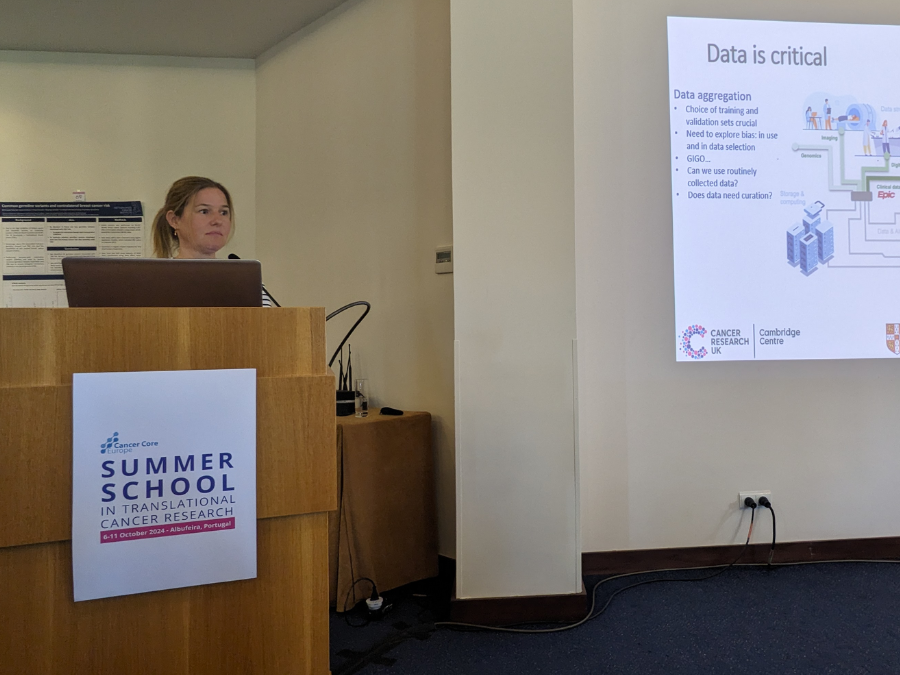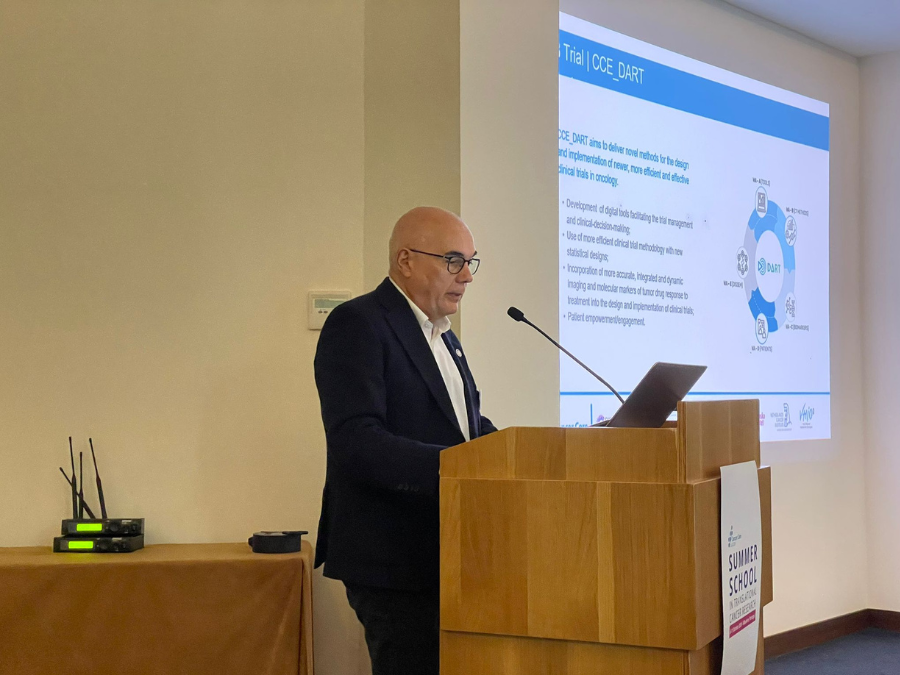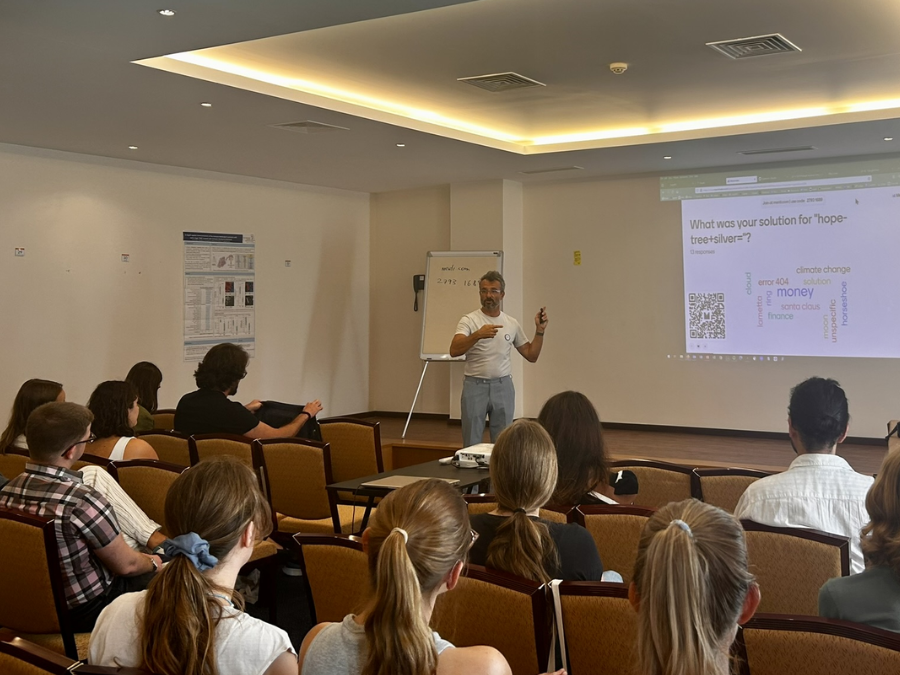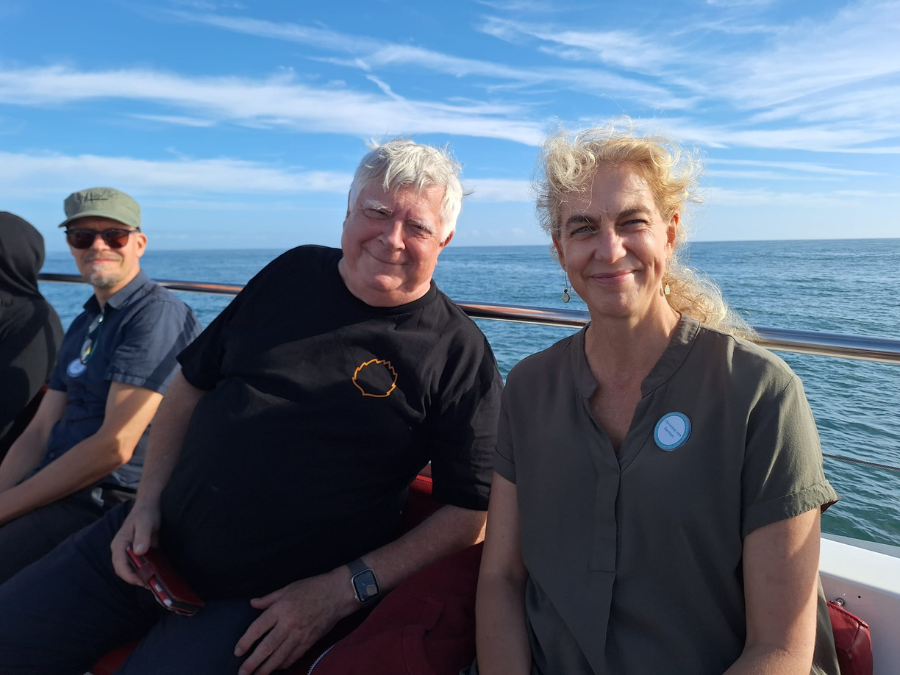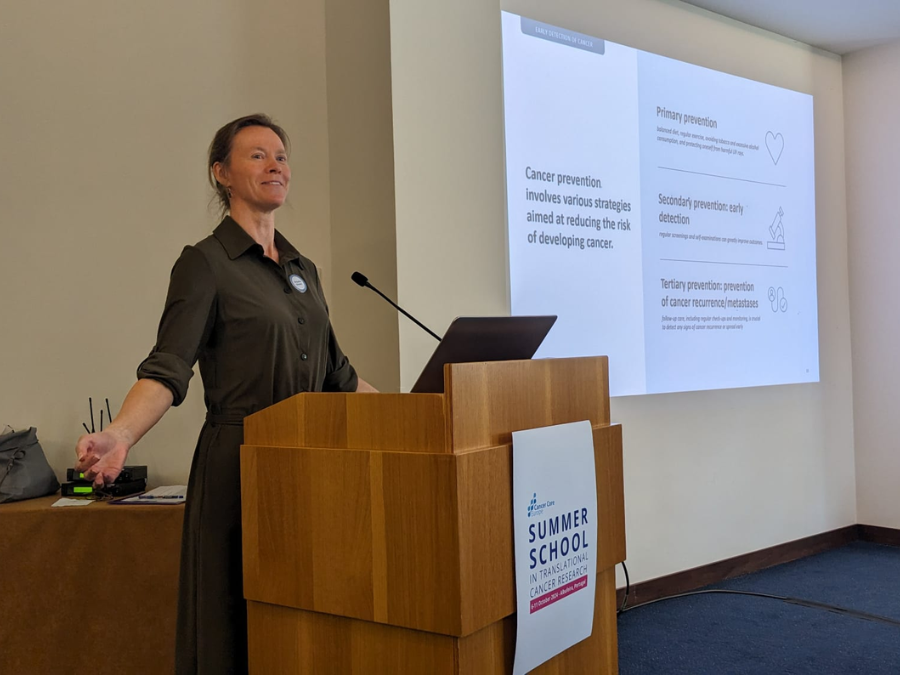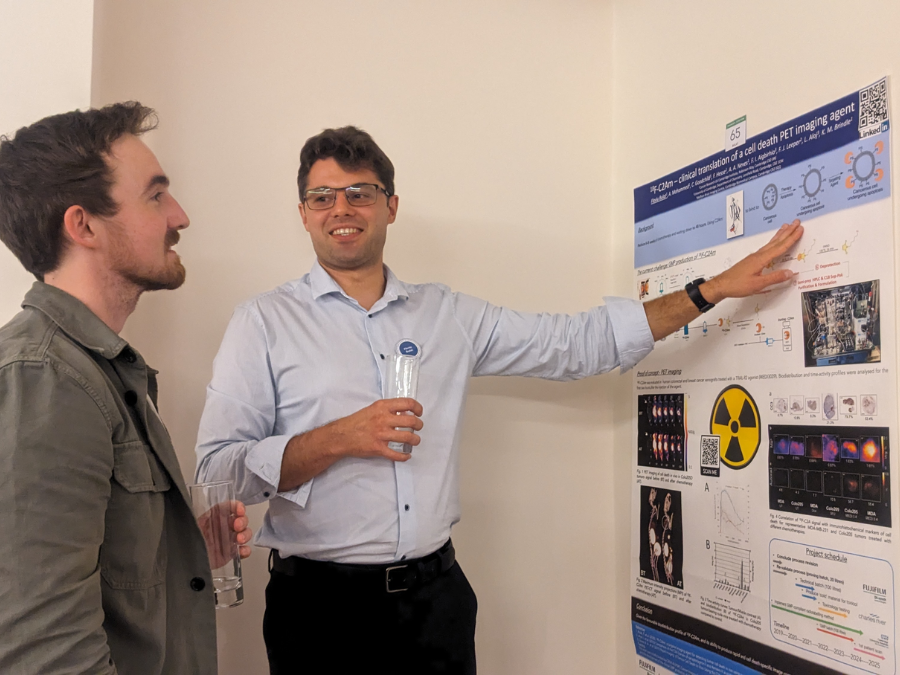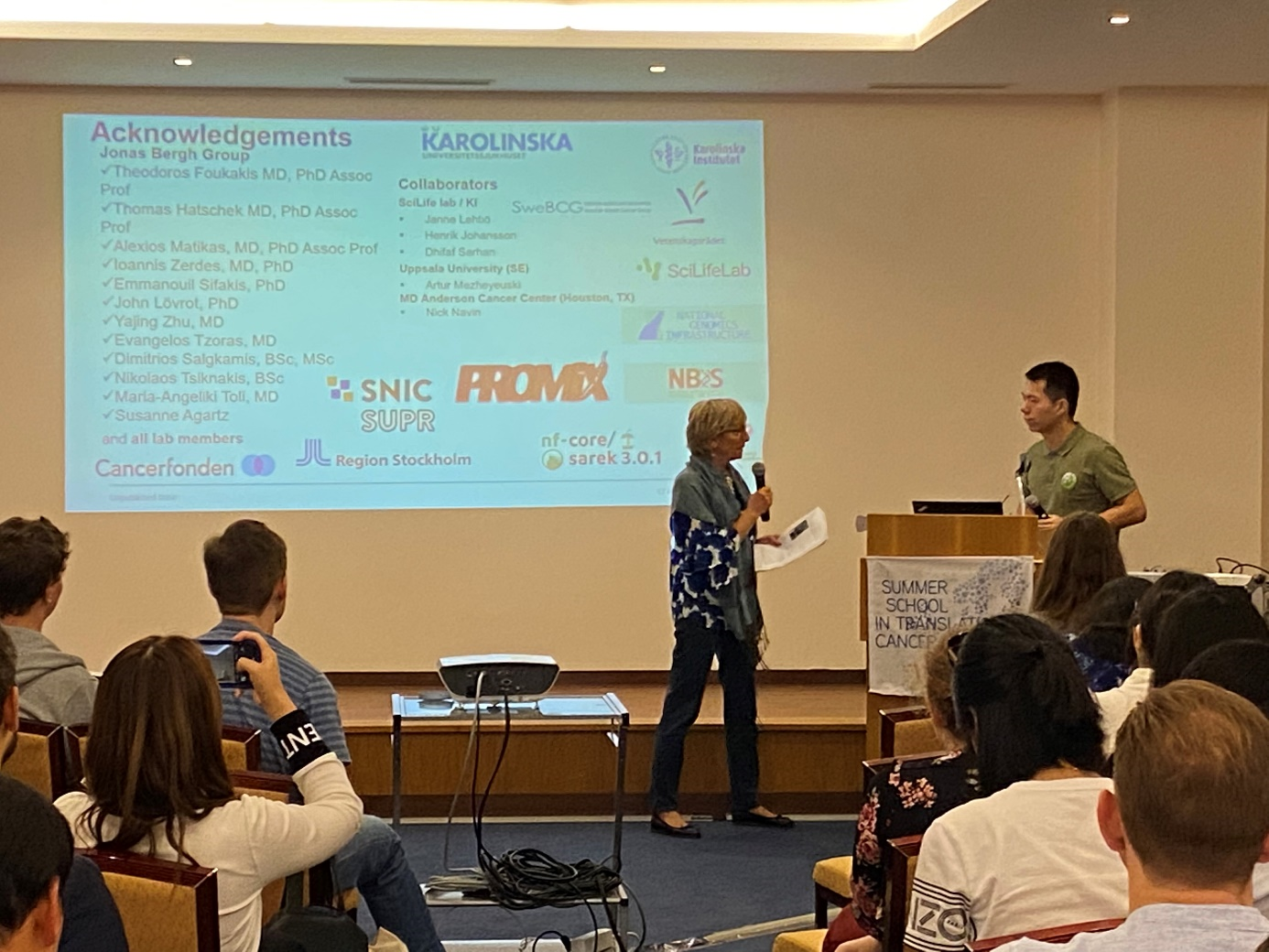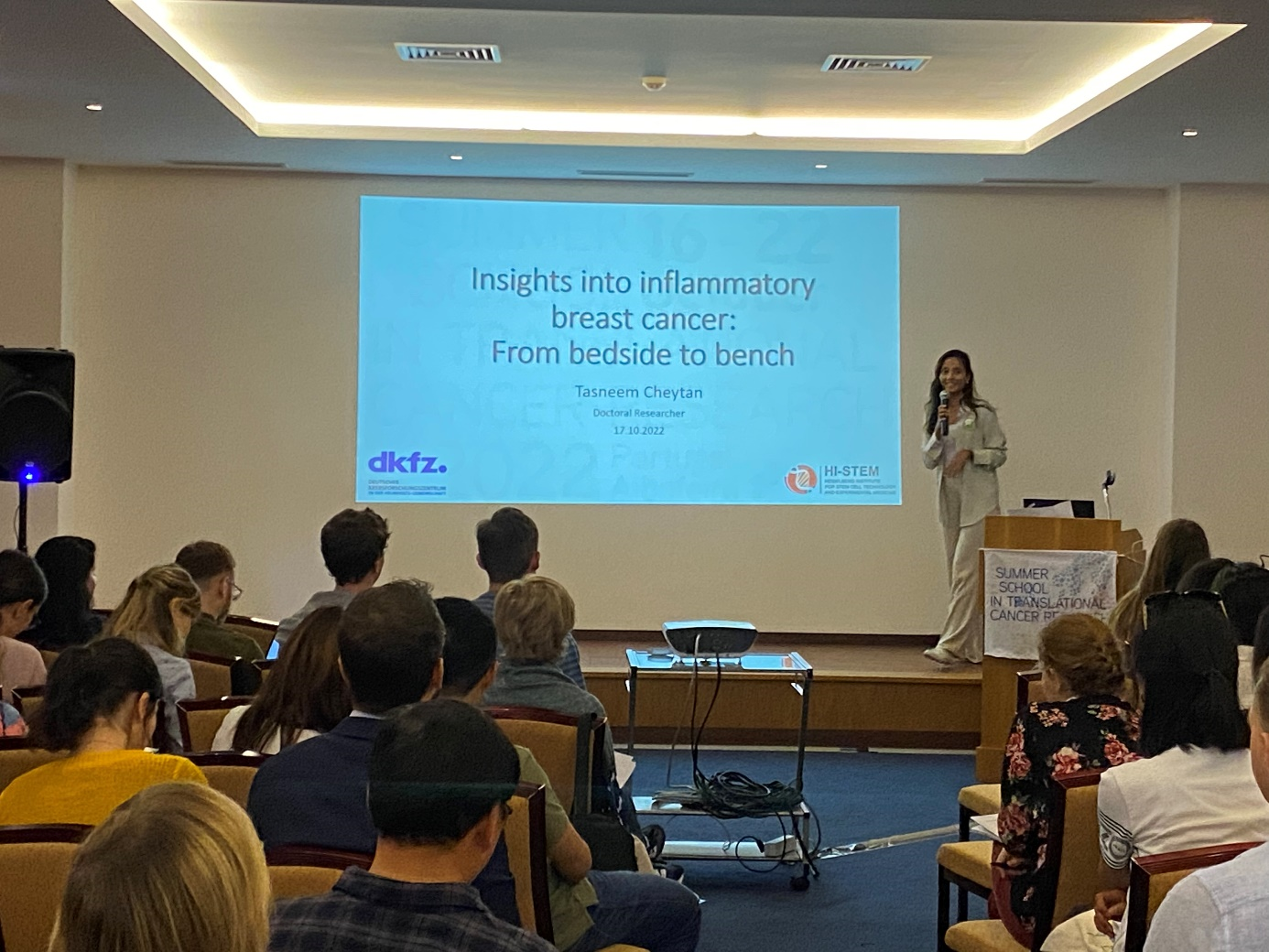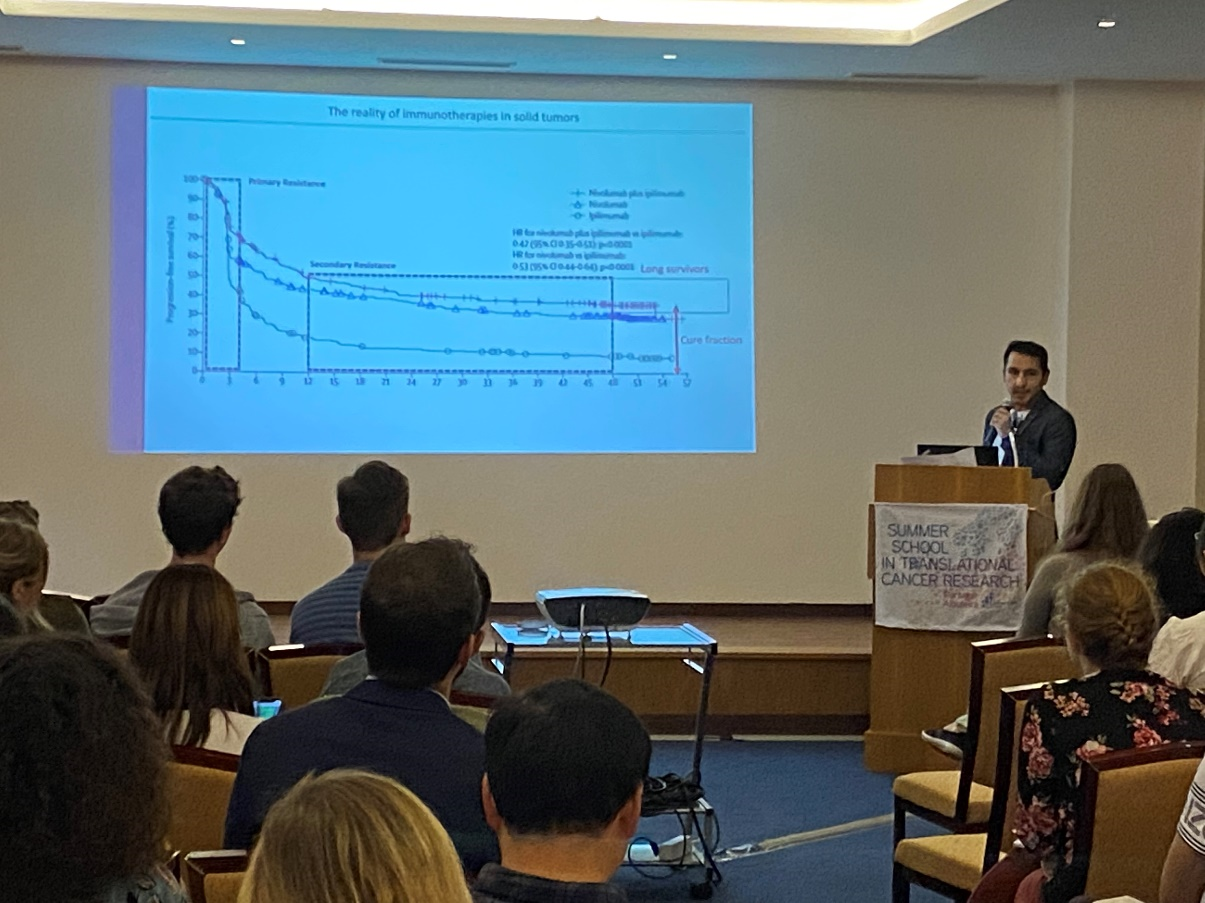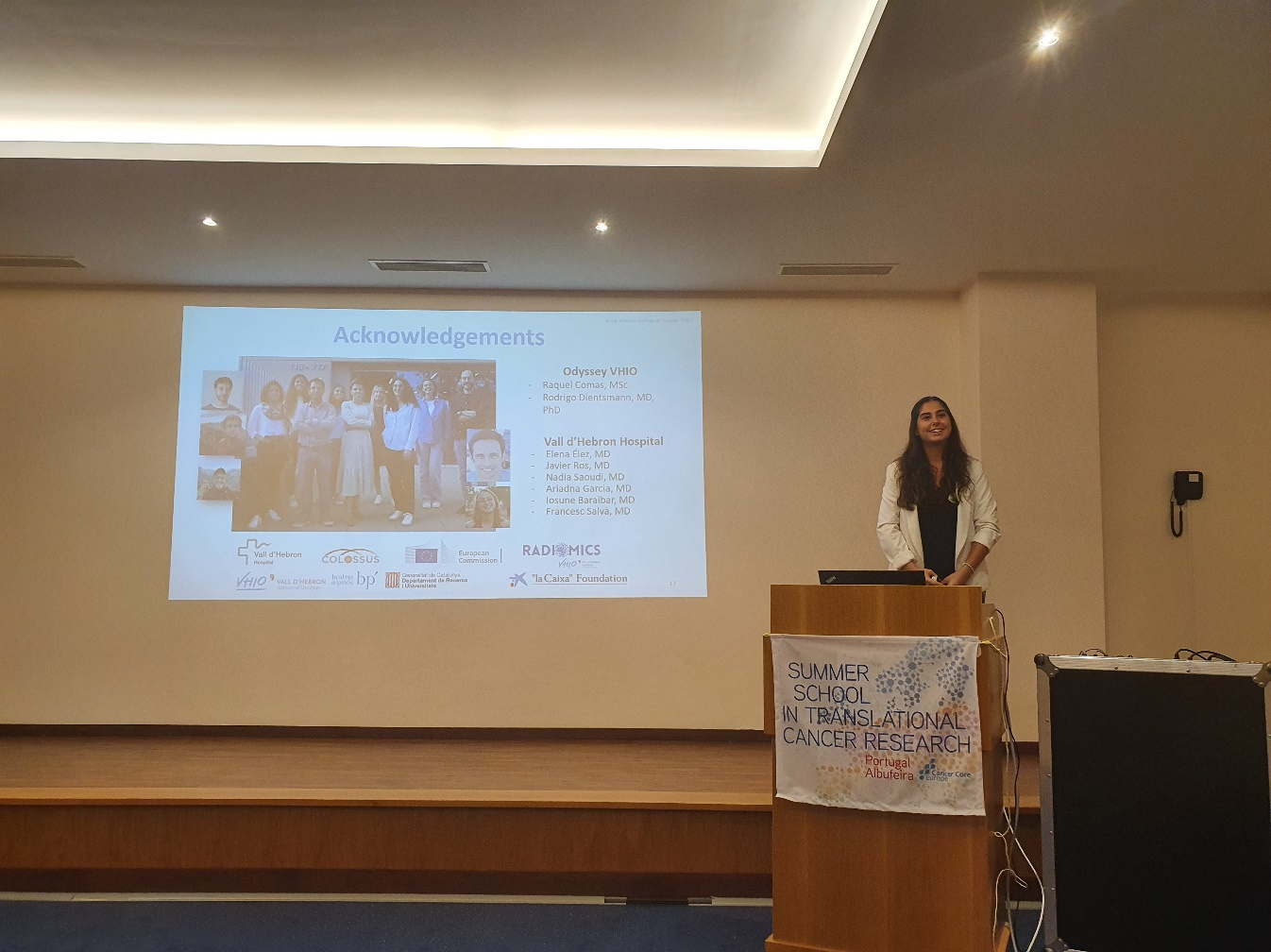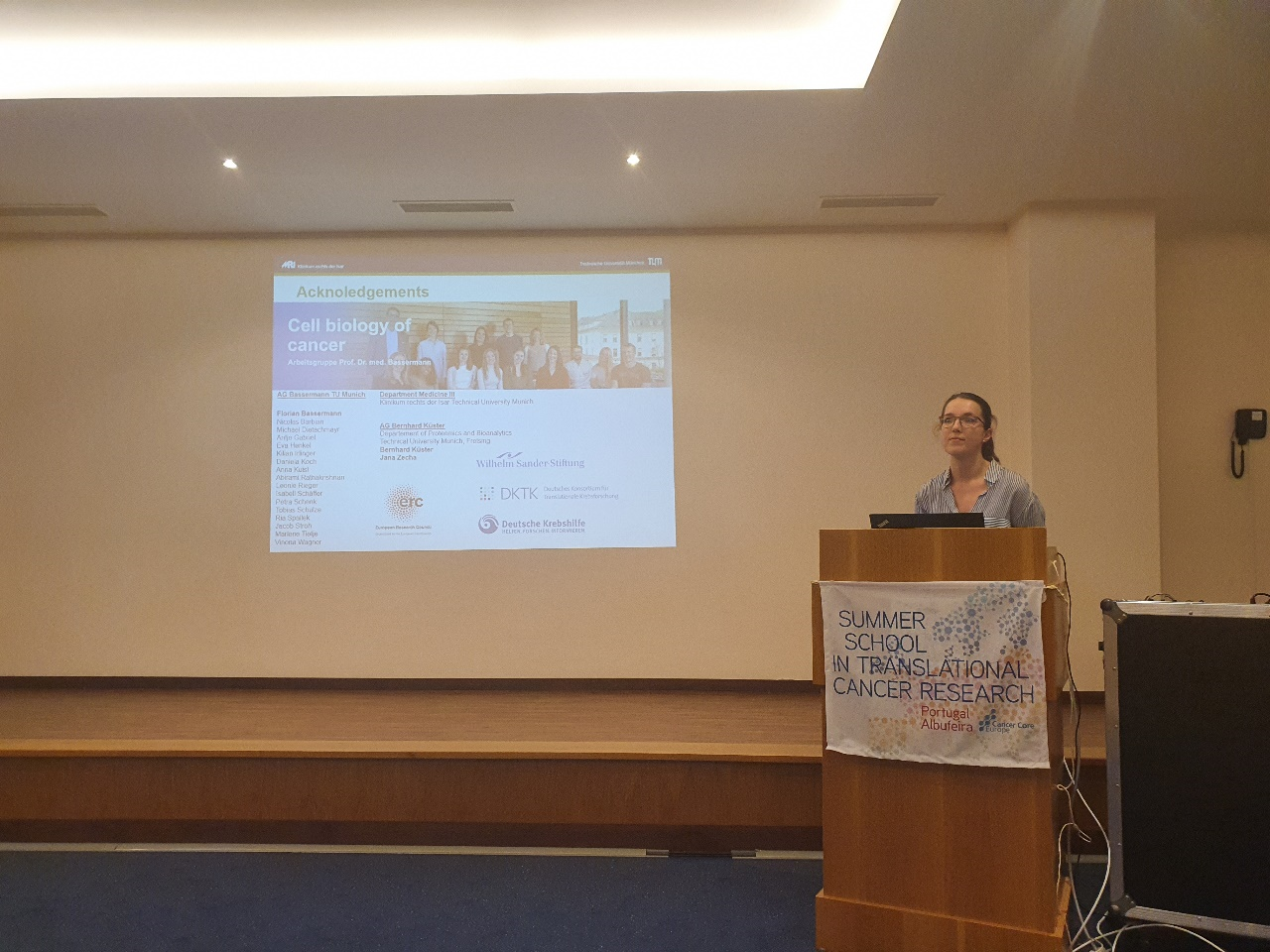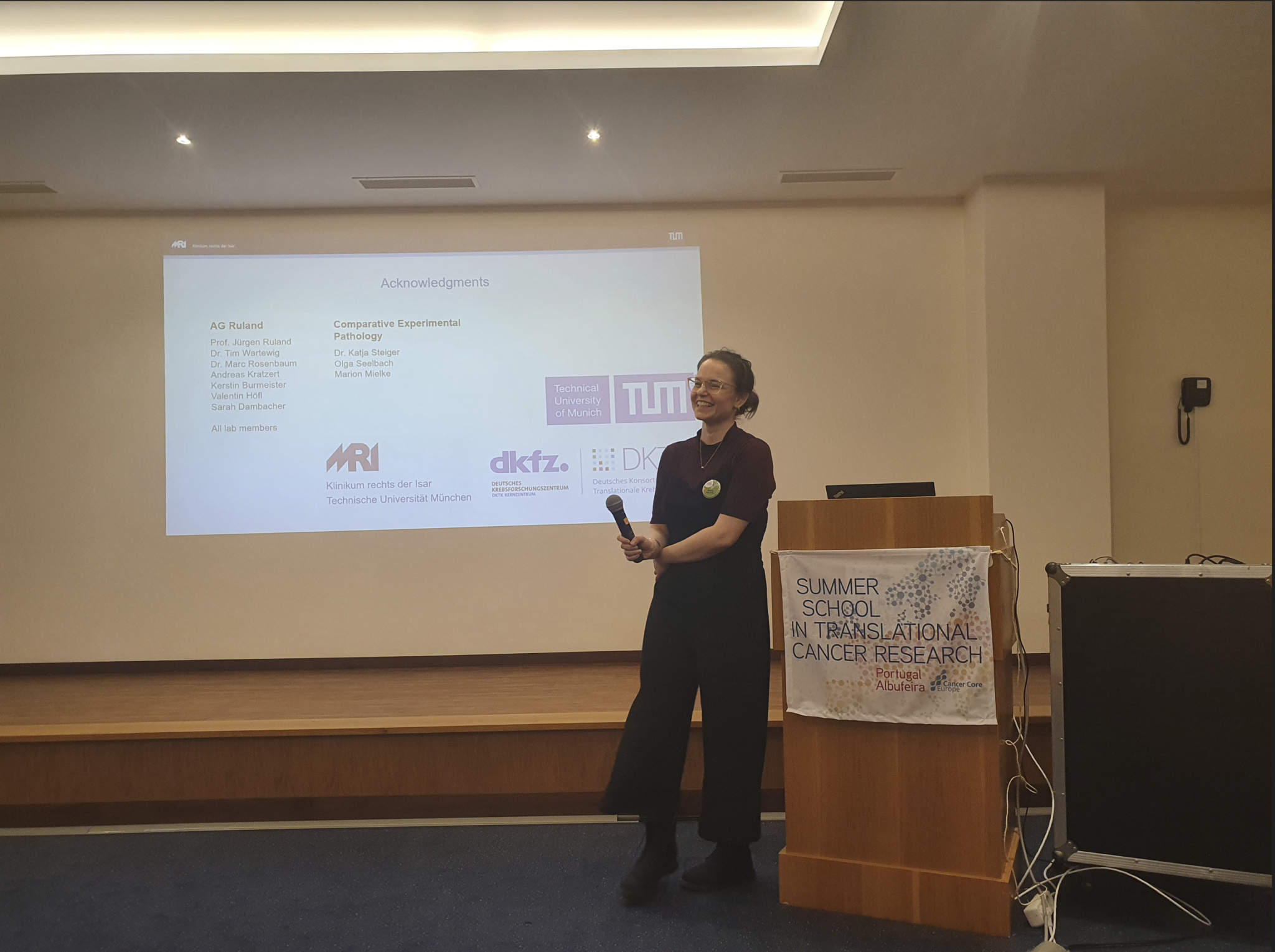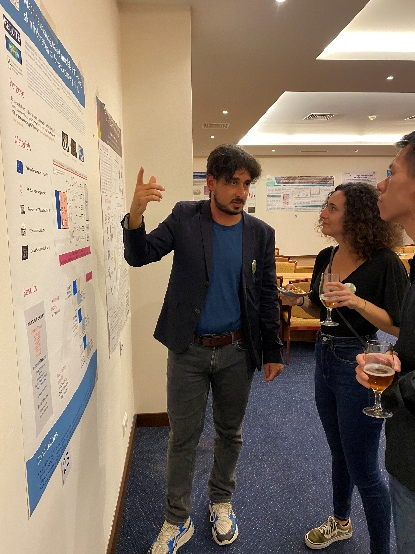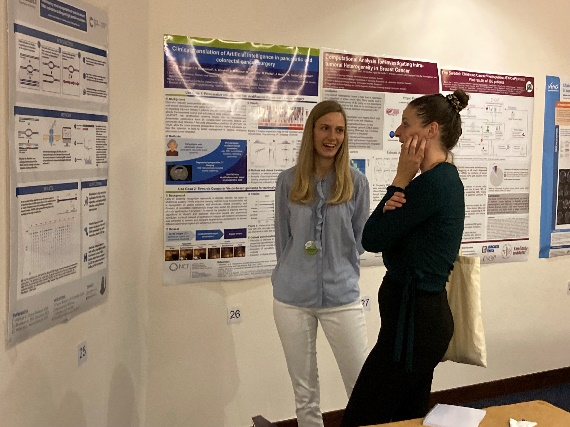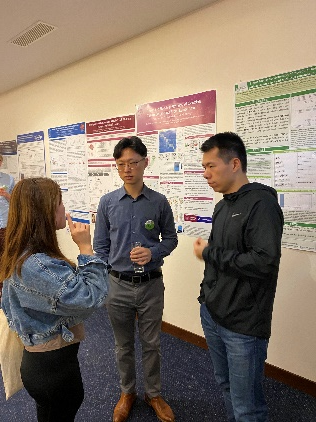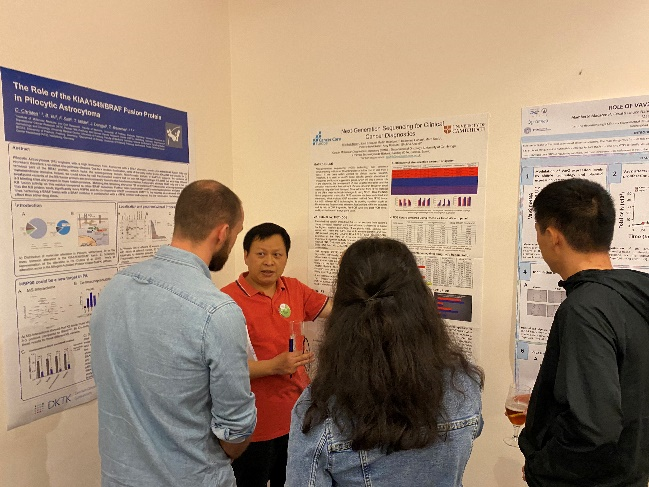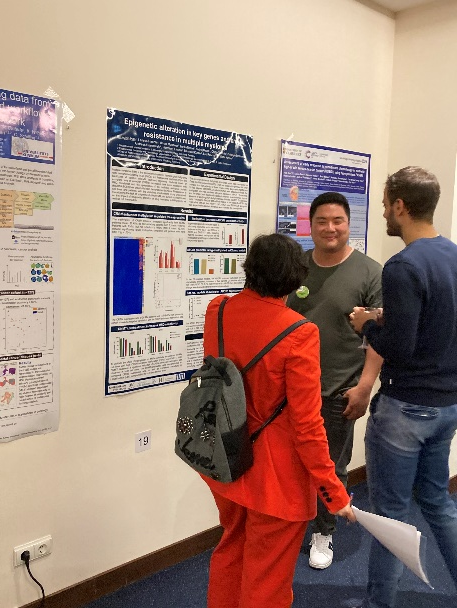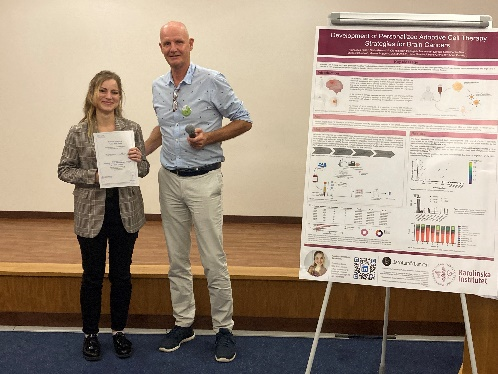2024 Cancer Core Europe Summer School unites Scientists and Clinicians from Around the World to Shape the Future of Cancer Care
For the eight-time, Cancer Core Europe hosted and organized its Summer School in Translational Cancer Research, bringing together a multidisciplinary group of junior investigators and clinicians eager to deepen their knowledge and expand their professional networks. This one-week program provided comprehensive coverage of cancer research, with a special focus on precision cancer medicine.
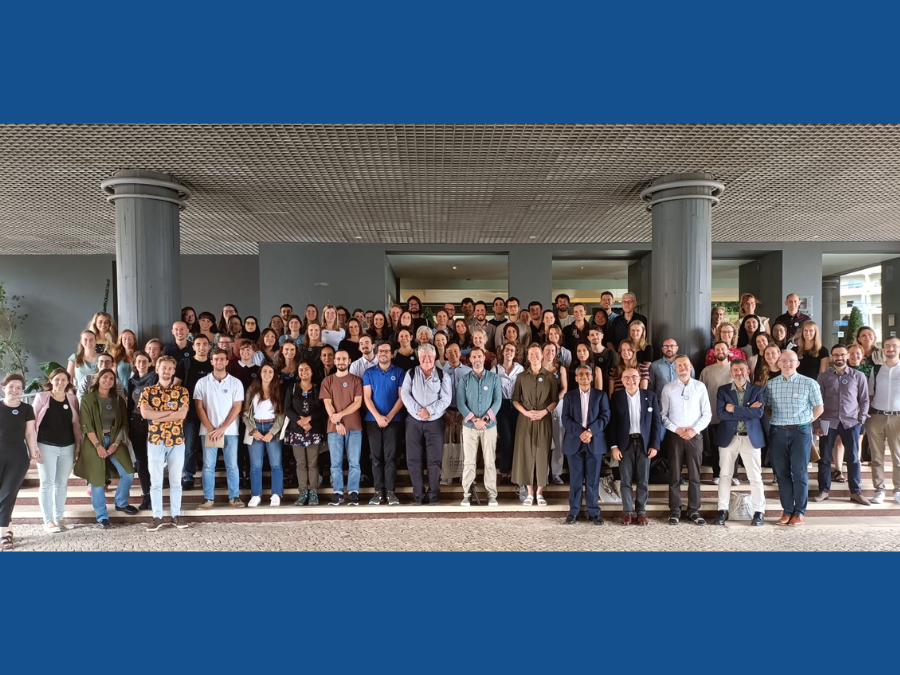
2024 Summer School Highlights
The 2024 Summer School attracted 70 participants representing 30 nationalities, providing a global platform for learning and collaboration. The attendees had the opportunity to engage with a distinguished faculty, including renowned experts from Cancer Core Europe member centers and partner institutions.
The program covered a wide array of oncology topics through lectures, workshops, and interactive sessions. Main topics included: precision medicine, AI, clinical trials, early detection and prevention, patient involvement, translational research, aging and cancer, computational oncology, hereditary cancer, tumor microenvironment, advanced therapies and sexual dimorphism.
These sessions not only deepened participants’ knowledge but also inspired discussions around the latest breakthroughs and challenges in cancer research.
Participants in the Spotlight
To recognize and reward remarkable participant research and work, the Summer School encourages both oral presentations and poster sessions as part of the program. Participants vote for the best talk, while a dedicated committee evaluates the posters. Prizes are awarded to the top performers in each category.
This year’s program featured 9 participant talks and 69 poster presentations. Congratulations to Simon Linder from the National Center for Tumor Diseases Heidelberg and the German Cancer Research Center (DKFZ) for winning the Best Participant Talk prize. Additionally, congratulations to the Best Poster Prize winners, Manon de Graaf from the Netherlands Cancer Institute (NKI), sponsored by Molecular Oncology, Verena Handl from the Medical University of Graz, and Marika Reinius from Cancer Research UK Cambridge Centre, whose prizes were sponsored by Cancer Core Europe.
Advancing Cancer Research Through Immersive Learning
Nick Tobin from Karolinska Institutet and Chair of the Summer School Scientific Committee emphasizes how the Summer School embodies the power of immersive learning. Unlike traditional conferences, where individual presentations may feel disconnected, this program allows participants to place their research within the broader context of cancer’s history. The result is an enriched understanding and a commitment to lifelong learning.
By offering a unique blend of education, collaboration, and networking, the Cancer Core Europe Summer School continues to be a pivotal program for advancing cancer research and preparing the next generation of oncology leaders.
Cancer Core Europe Summer School in Translational Cancer Research 2024 was supported by The German Cancer Consortium (DKTK), CCE_DART, Cancer Prevention Europe (CPE), Molecular Oncology. And sponsored by BIOTRIAL, SOPHiA GENETICS and Oxford NANOPORE Technologies.
Cancer Core Europe Summer School 2023: a rotund success in advancing oncology education
Cancer Core Europe is thrilled to announce the accomplishment of CCE Summer School in Translational Cancer Research 2023, an important event that brought together, for the seventh time, top researchers, clinicians, PhD students, Postdocs and experts in the field of cancer.
The Summer School 2023, which took place from October 8 to October 14, in Porto Bay Falésia, in the Algarve, Portugal, was a resounding success, reinforcing our commitment to advancing cancer research and education.
The Cancer Core Europe Summer School 2023 was a gathering of the brightest minds in the field of oncology, attracting young students from around the world. Over the course of seven days, attendees had the opportunity to interact with well-known specialists in translational cancer research, learn in-depth details about cutting-edge cancer research, and work together on creative ideas to overcome the challenges of cancer.
Key highlights of the event:
- Worldwide Student Participation: This edition gathered 70 students from around the world, representing over 30 nationalities.
- Faculty of the Highest-Quality: Renowned experts from Cancer Core Europe member centres and partner institutions gave insightful lectures, workshops, and interactive sessions on a variety of oncology topics, such as patient perspectives, translational research, AI and imaging, and immunology and immunotherapy.
- Networking Opportunities: The event facilitated networking between participants, enabling the exchange of ideas, experiences, and potential collaborations.
- Cutting-Edge Research: Attendees were exposed to the latest advancements in cancer research, including breakthroughs in early detection, precision medicine, and innovative therapies.
At Cancer Core Europe, we would like to extend our gratitude to all participants, speakers, chairs and supporters who were able to attend and take part in this year’s event. Additionally, congratulate the Summer School scientific committee and organising team for the fantastic job done.
Thank you all for a successful event and we look forward to Summer School 2024!
Cancer Core Europe Summer School 2023 was supported by The German Cancer Consortium (DKTK), Cancer Prevention Europe (CPE), Molecular Oncology, Algarve Biomedical Center, EMBO and Novartis.
About the Summer School in Translational Cancer Research has been initiated in 2011 by the EurocanPlatform project funded under the 7th Framework Programme of the European Union (https://cordis.europa.eu/project/id/260791) and performed four times hosted by the EurocanPlatform. Since 2016, it has been hosted annually by Cancer Core Europe.
About Cancer Core Europe: Cancer Core Europe (CCE) is an alliance of seven leading European cancer centers and research institutions. To learn more about Cancer Core Europe and the Summer School, please visit www.summerschool.cancercoreurope.eu
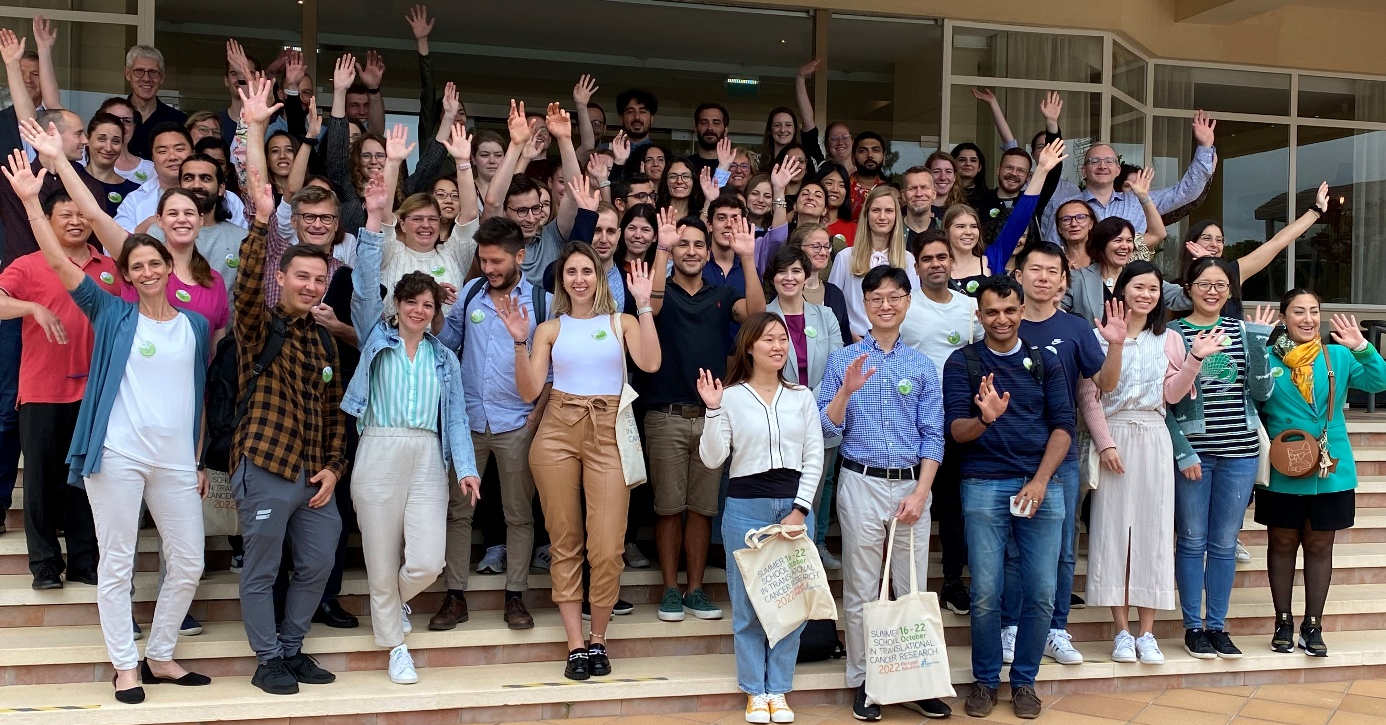
Cancer Core Europe (CCE) Summer School in Translational Cancer Research, October 16-22, 2022, Portugal
We thank the Scientific Committee, all speakers and all participants for their contributions and for making the CCE Summer School 2022 a great success! We would also like to thank our supporters: the German Cancer Consortium (DKTK), the Cancer Prevention Europe consortium (CPE) and Molecular Oncology.
The CCE Summer School, led by Prof. Dr. Stefan Fröhling and the CCE Scientific Committee, brought together aspects of the entire continuum of cancer research, with a special focus on personalized cancer medicine. The aim of the Summer School was to strengthen the skills of young scientists, to promote exchange between scientists with different backgrounds (e.g. biology, medicine, biochemistry), to give them new perspectives on their own projects and to inspire them to think beyond their own field of research.
Sixty-four ambitious doctoral and postdoctoral researchers as well as clinician scientists from twelve countries and twenty-nine international speakers met at the beautiful hotel Porto Bay Falesia in Portugal.
The discussed research covered a broad spectrum, from fundamental and preclinical research, including computer sciences, to clinical research. The training program focused on personalized approaches to cancer medicine for a wide variety of cancer entities. Topics included immunotherapy, digital oncology and artificial intelligence, imaging, nutrition and physical activity in cancer prevention as well as ethics and health economics. This was complemented by workshops on clinical decision support systems, how to set up clinical trials, and project-, self- and career-management.
Based on their abstracts, six participants were selected in a peer-review process for oral presentation of their projects.
During poster sessions, all participants were able to share and discuss their research – which they did until late at night! Francesca Gatto, PhD student from Karolinska Institutet, won the poster award funded by Molecular Oncology.
The present ations were scientifically excellent. As the speakers from Sweden originally planned for the first talks were stranded in Lisbon due to delayed flights, Benjamin Besse from Goustave Roussy was the first speaker and gave a very extraordinary talk on immunotherapy. In one of the talks later in the week, Jakob Kather explained how artificial intelligence can be used for decision making in medicine, but also to (potentially in the future) get papers virtually written by themselves.
he hunter's gymnastics of Svetlana Lagercrantz provided good mood and energizing activity between the talks.
The lively and in-depth discussions among the interdisciplinary group of participants and speakers throughout the entire week were highly appreciated and broadened the scope of each participant. Many breaks stimulated further informal exchange of ideas among the scientists in an inspiring and relaxed atmosphere, and rounded off the CCE Summer School successfully.
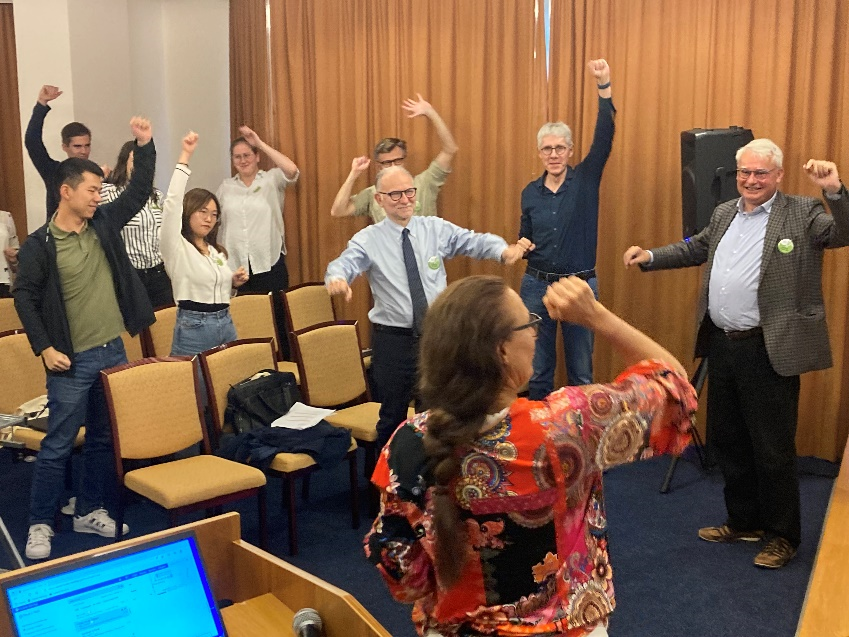
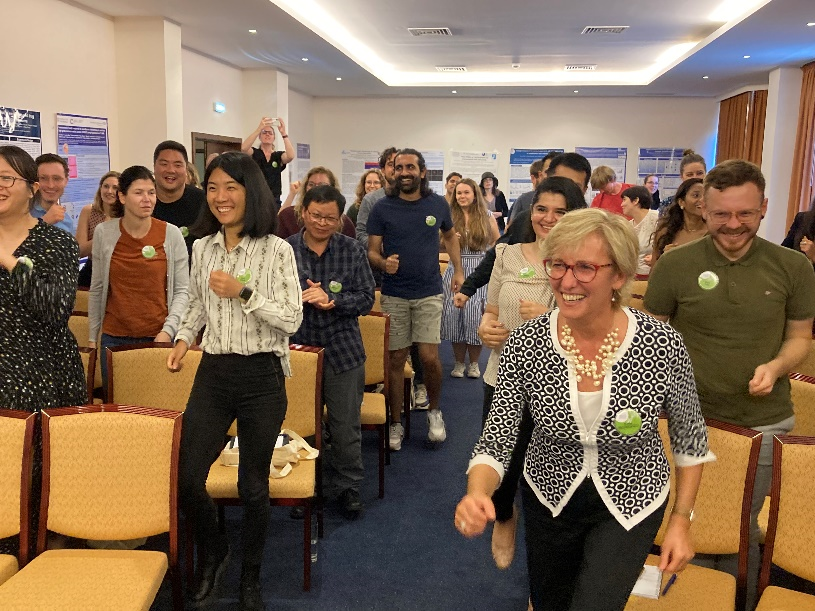
CCE Summer School 2020 from CancerCoreEurope on Vimeo.
Contact Organizing Team
E-mail: summerschool@nct-heidelberg.de
